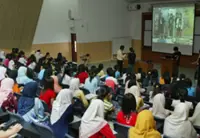TOMORROW marks the start of a new year, bringing with it the opportunity to enhance Malaysia’s education sector.
In particular, the tertiary education sector needs to embrace lifelong learning, technical and vocational education and training (TVET) and flexible digital learning if we are to meet the Prime Minister’s call for prioritising quality education in the year ahead.





